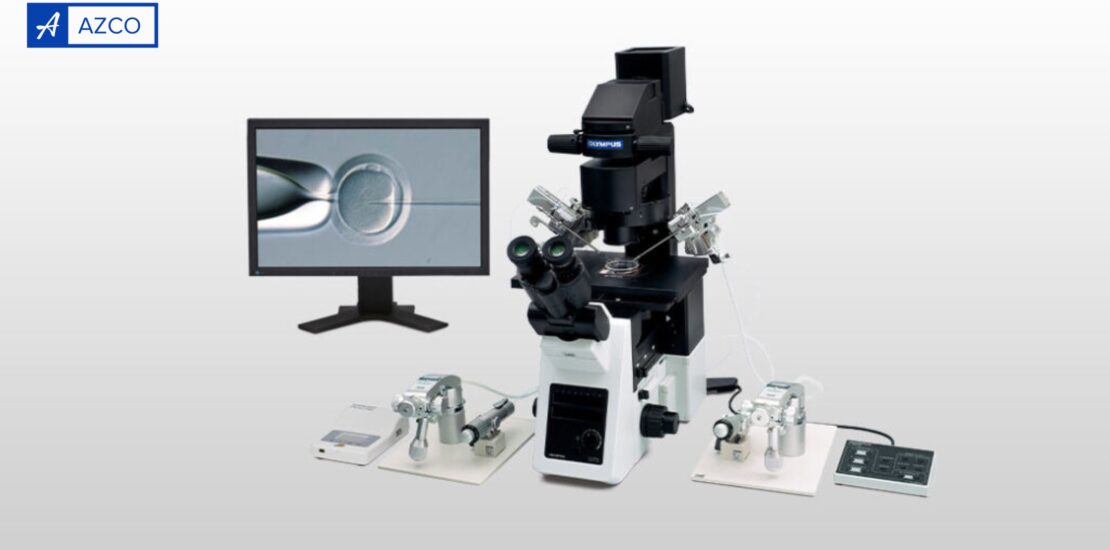- August 26, 2025
- Posted by: Qamar Un Nisa
- Category: Uncategorized

For couples struggling with infertility, medical science offers several advanced treatments to help them conceive. But many people ask: what is ICSI IVF, and how is it different from traditional IVF?
Understanding the Basics: What Is ICSI IVF?
Together, ICSI IVF is an advanced form of IVF in which a single healthy sperm is directly injected into an egg to achieve fertilization.
But in ICSI, embryologists select a single sperm and inject it directly into the cytoplasm of the egg using a microscopic needle.
So, if you’re wondering what is ICSI IVF, think of it as a more targeted, precise version of IVF — especially useful in cases of male infertility or previous IVF failure.
Why Is ICSI IVF Used?
ICSI is commonly used when:
- There is a history of failed fertilization in past IVF attempts.
- Sperm is retrieved surgically, such as from the testicles or epididymis.
- There are anti-sperm antibodies affecting fertility.
It can also be used in certain unexplained infertility cases where standard IVF does not provide results.
Step-by-Step: How Does ICSI IVF Work?
To fully understand what is ICSI IVF, it’s helpful to know how the process works in a clinical setting. Here’s a breakdown of the procedure:
1. Ovarian Stimulation
The woman is given hormone injections to stimulate the ovaries to produce multiple eggs. Regular ultrasounds and blood tests monitor the response.
2. Egg Retrieval
Once the eggs are mature, they are retrieved from the ovaries using a minor surgical procedure called follicular aspiration, performed under sedation.
3. Sperm Collection
A semen sample is provided by the male partner. If sperm quality is low or if there’s no sperm in the ejaculate, sperm may be retrieved surgically (e.g., TESE or PESA).
4. ICSI Procedure
Under a microscope, a single healthy sperm is selected and injected directly into each mature egg using a micro-needle.
5. Embryo Culture
The fertilized eggs (embryos) are cultured in a lab for 3 to 5 days. Embryologists monitor their growth and development closely.
6. Embryo Transfer
7. Pregnancy Test
About two weeks after the transfer, a blood test is done to check for pregnancy.
Success Rates of ICSI IVF
ICSI IVF has been a game-changer for couples facing male infertility. The fertilization rate using ICSI is between 70%–85%, meaning a high proportion of injected eggs become embryos.
However, it’s important to note:
- Fertilization does not always guarantee pregnancy.
- Success also depends on female age, egg quality, and uterine health.
For women under 35, the pregnancy success rate per ICSI IVF cycle can be as high as 40-50%.
Benefits of ICSI IVF
Now that you know what is ICSI IVF, here are the top benefits of the procedure:
Higher Fertilization Rates
ICSI increases the chances of fertilization, especially when sperm quality is low.
Helps Severe Male Infertility
Men with extremely low sperm count or non-motile sperm can still father biological children.
Useful for Frozen Sperm
Prevents Fertilization Failure
ICSI minimizes the chances of failed fertilization, which can sometimes happen in regular IVF.
Compatible with Genetic Testing
Risks and Considerations
While ICSI IVF is generally safe and effective, it does come with certain risks and considerations:
Cost
ICSI is more expensive than traditional IVF due to the labor-intensive technique and equipment involved.
Possible Egg Damage
The injection process may damage the egg in rare cases, making it unusable.
Not Always Necessary
ICSI is not always required, especially if male fertility is normal. Overuse can lead to unnecessary medical intervention.
Ethical and Legal Concerns
In some regions, ICSI and embryo manipulation may be subject to strict regulations.
Always discuss with your fertility specialist whether ICSI is truly necessary in your case.
ICSI IVF in Pakistan
Fertility awareness is growing in Pakistan, and many clinics now offer ICSI IVF as part of their services. Leading cities like Lahore, Karachi, Islamabad, and Peshawar have established fertility centers with experienced embryologists and world-class labs.
The cost of ICSI IVF in Pakistan ranges from PKR 400,000 to PKR 700,000 per cycle, depending on the clinic, medication, and complexity of the case. While this may seem expensive, the emotional and life-changing impact of having a child makes it worthwhile for many couples.
FAQs About ICSI IVF
Is ICSI better than IVF?
ICSI is not “better,” but it is more targeted. It’s best suited for couples with male infertility or previous IVF failure.
How long does ICSI IVF take?
A complete cycle takes around 4 to 6 weeks, including preparation, egg retrieval, embryo transfer, and follow-up.
Can ICSI increase birth defects?
Studies show only a slightly higher risk of birth defects with ICSI compared to natural conception, and it’s often linked to underlying infertility issues rather than the procedure itself.
Conclusion: Is ICSI IVF Right for You?
So, what is ICSI IVF? It is a revolutionary fertility technique that offers hope to countless couples, especially where male infertility is the primary challenge. By injecting a single healthy sperm directly into an egg, ICSI enhances the fertilization process, improves embryo quality, and increases the chances of pregnancy.
If you’ve faced failed IVF cycles or have been diagnosed with male factor infertility, ICSI could be the solution you’ve been looking for. Always consult a qualified fertility specialist to assess your case and determine the best approach.
Whether in Pakistan or anywhere else, understanding what is ICSI IVF empowers you to make informed and confident decisions about your fertility journey.

